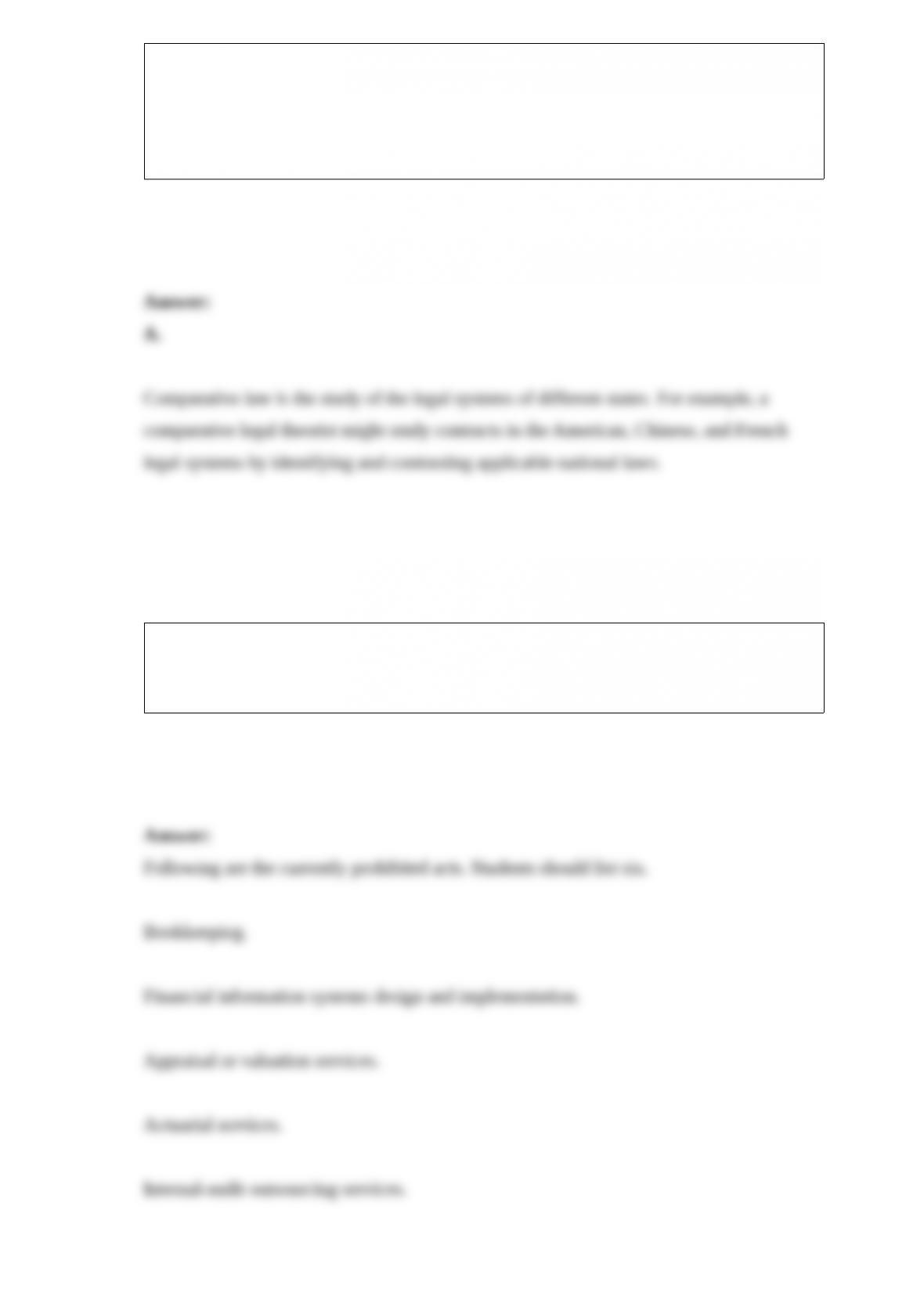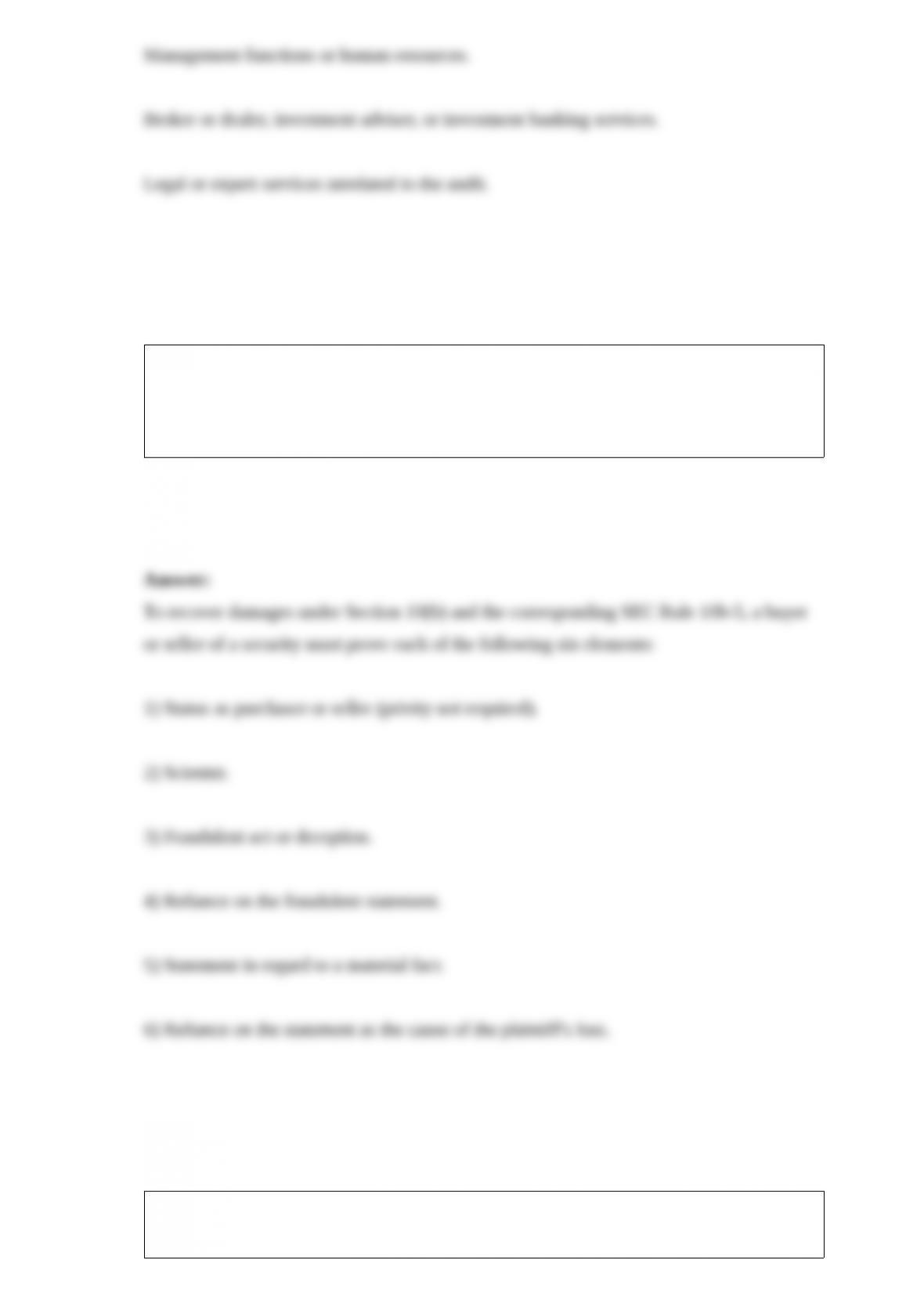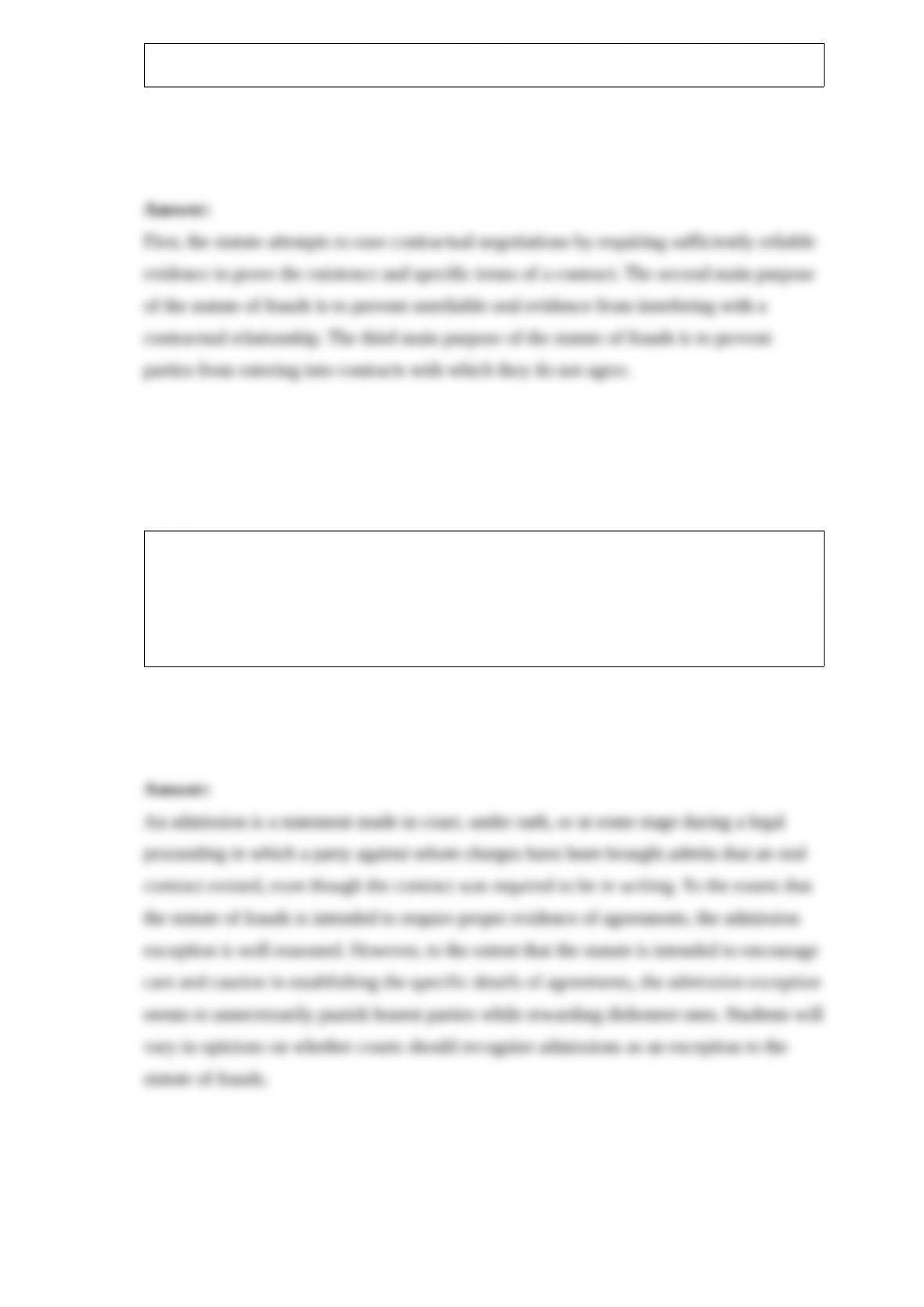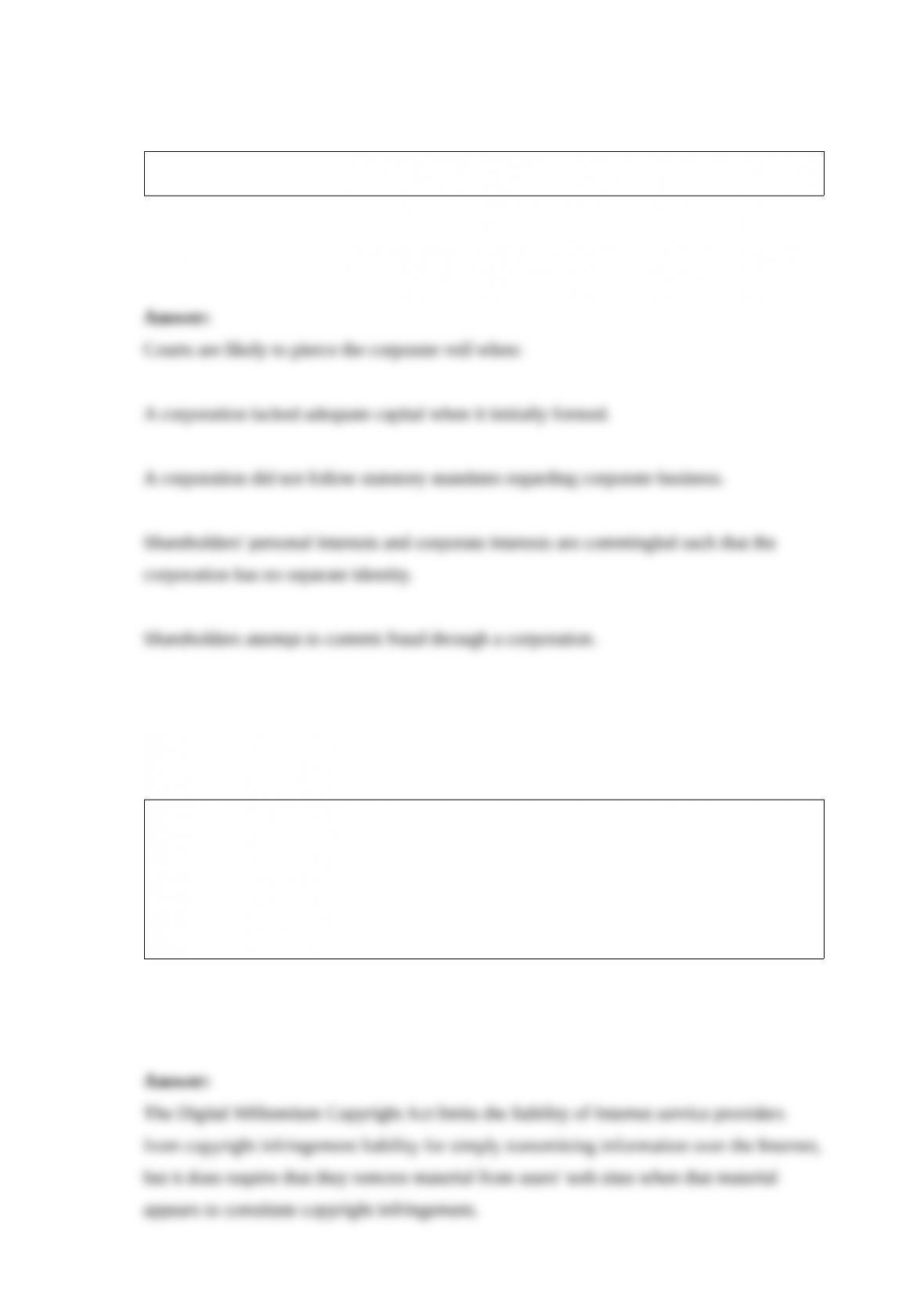D. Improvement
E. Acknowledged
"DUI Charge." Monique was licensed by her state to train massage therapists. The state
licensing agency, the Aesthetic and Massage Commission, took very seriously its role
of enforcing the state statute enabling the Commission to do its work and providing that
licensed massage therapists must refrain from "any act or conduct indicating bad faith,
incompetence, dishonesty, or improper dealing." Rules were passed authorizing the
agency to revoke the license of anyone found guilty of such acts or conduct. Monique,
while driving home late one night from a party, was stopped by the police and arrested
for driving under the influence of alcohol. She pled guilty to the offense. When the
Aesthetic and Massage Commission discovered the offense, the officials of the agency
met, decided that Monique might drink on the job, and that she might pose a danger to
students. Accordingly, her license to teach massage therapy was revoked. Monique
threatened to sue to retain her license and was told by the agency head that she had no
right to appeal to court because, based on her admission of guilt, no factual dispute was
involved. The agency official went on to say that even if an appealable issue existed,
agency action may only be overturned when there is clear and convincing evidence that
the agency exceeded its discretion. The administrative system in Monique's state is
identical to the federal system.
Which of the following is true regarding the statement by the agency head that agency
action may only be overturned when there is clear and convincing evidence that the
agency exceeded its discretion?
A. The agency representative is essentially correct because agency decisions are upheld
in over 99% of the cases and may only be overturned only if no evidence whatsoever
supports the agency's interpretation of its regulation.
B. The agency representative is incorrect because agency decisions are usually struck
down unless they are supported by clear and convincing evidence.





























































































